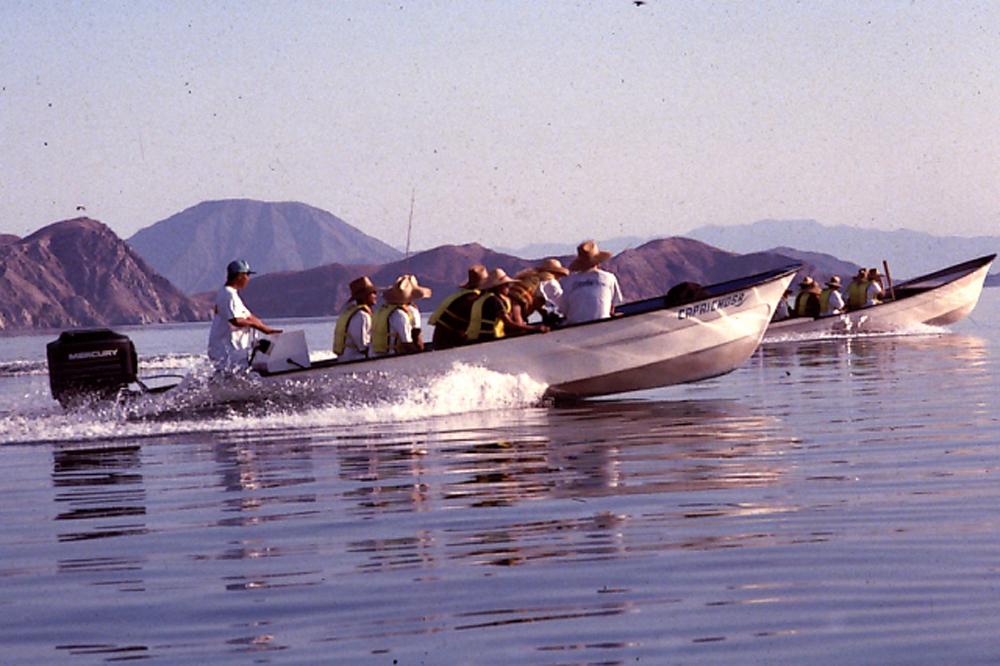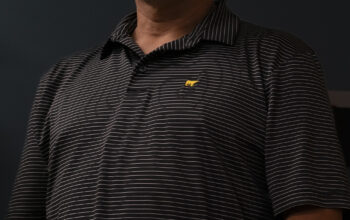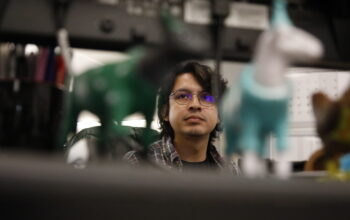Alyssa Wejebe / Roundup
For their nightly ritual, students set up their cots on a strip of sand about 10 feet from the water. Their only lullaby is the sound of the water lapping at the shoreline—but there is one other thing.
“When you’re sleeping at night, you can hear the whales breathing offshore,” said Ursula Doswell-Fotheringham, 20, a biology major.
This was the nightlife for her and other students in Biology 123, a summer class that took them to the Sea of Cortez in Bahia de los Angeles, Baja California, Mexico.
According to the online brochure, the class will be offered again this summer at Pierce College for a total of $1195.
The cost includes the $50 application fee and the school’s registration fee for three units. It does not include transportation costs.
The application fee is paid in a deposit totaling $250, which is required to make a reservation.
Biology 123 is transferable to the California State University and University of California schools.
The professor makes the final decision on who can attend the class.
Biology 123 is taught by Raymond Wells, who has a doctorate in marine ecology from the University of Southern California.
He has worked in the Sea of Cortez, also known as the Gulf of California, for more than 30 years.
Wells said his class has been diverse, filled with freshman, people from different universities, graduate students and older people who just want something fun to do.
“So it’s a really good mix,” said Wells.
Wells said the Sea of Cortez was very tropical in terms of the species that live there.
He said that includes dolphins, finback whales, humpback whales and sea lions.
Wells said that there are 16 islands in the Bahia de los Angeles region, and that his students work off several of them.
He said students snorkel during the day, night and at dusk to observe the marine life. They watch the fish change color, or other species bury in the sand at sundown and then come out at sunrise. Students who weren’t selected to be part of the class could still see whales if they go on the popular whale watching california tours. Seeing these magnificent creates in action is truly fascinating and students will be speechless when them.
Wells said the school administration is supportive.
Barbara Anderson, dean of academic affairs, applauded the academic focus on field research.
“It’s like going to a real living laboratory,” she said.
Her daughter had come down from UC Santa Cruz to attend the class.
“She almost jumped in the water and swam with a whale shark,” said Anderson, recalling one of her daughter’s experiences there.
Wells said that many of his former students in Biology 123 described the class as “a life-transforming experience.”
Doswell-Fotheringham said Biology 123 helped her think about her future.
“It made me realize I wanted to get more field research experience in a variety of biological fields before I settle on a path,” she said.
According to the online brochure, Biology 123 will start July 24 and end Aug. 6.
More information about the class can be found at http://www.pcmsusa.org/homeB123.html.
—
awejebe.roundupnews@gmail.com

(Courtesy of Raymond Wells)



